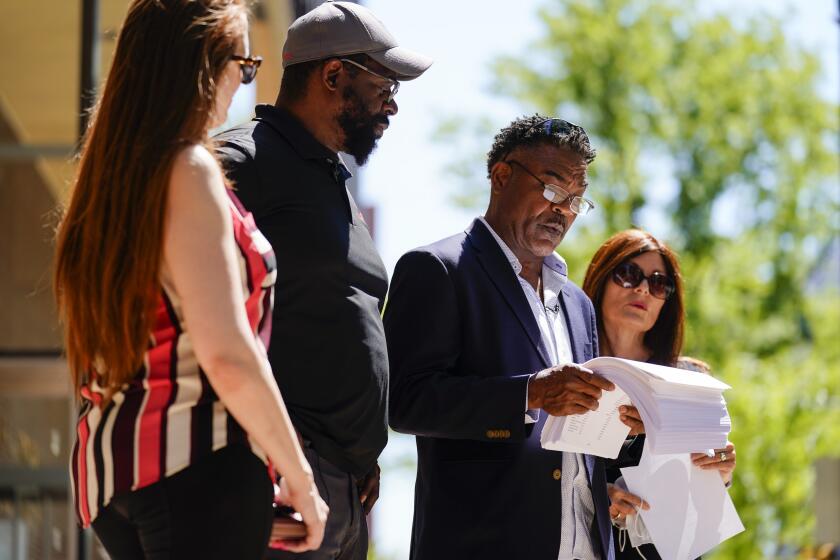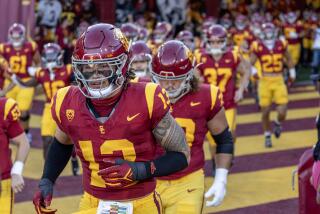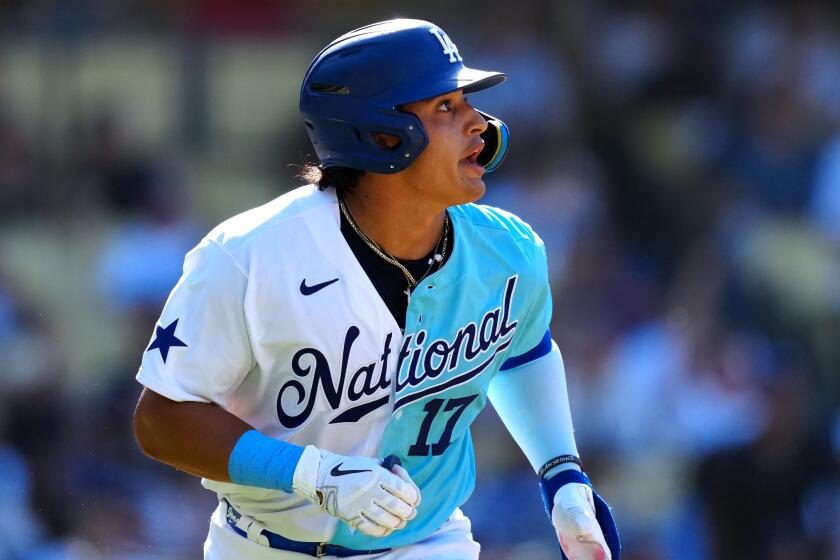Harry Edwards: NFL ‘race-norming’ is morally unconscionable and legally indefensible

The NFL has promised to put an end to the controversial practice of “race-norming,” which assumed Black players started out with a lower level of cognitive function and thereby makes it harder for those retirees to prove they qualify for payouts in the administration of the 2017 $1 billion-plus concussion settlement.
“We are committed to eliminating race-based norms in the program and more broadly in the neuropsychological community,” the NFL said in a statement, while maintaining that no such discrimination took place in the administration of the settlement.
The revelation came to light last year when former players Najeh Davenport and Kevin Henry sued the league, alleging that race-norming led to them being denied a portion of the settlement. A judge dismissed the case earlier this year, and the NFL and Christopher Seeger, the lead attorney for the players in the concussion settlement, said the use of race-norms was not mandatory and up to the individual doctors to use or ignore while performing the evaluations.
The NFL is pledging to halt the use of ‘race-norming’ in the $1-billion settlement of brain injury claims and to review claims by Black players for any potential race bias.
Harry Edwards, a sociologist and longtime staff consultant for the San Francisco 49ers, has spent a half-century studying the intersection of sports and society. He spoke Sunday to the Los Angeles Times about race-norming, what it suggests and what the NFL should do to repair the damage it has caused.
When did you first become aware of race-norming as it relates to the NFL concussion settlement?
Edwards: I’ve known about this since last August. When it first became an issue, I was contacted by some people who have been looking at this thing as a eugenics issue for quite some time. But the details of it didn’t start coming out until the NFL faced that lawsuit. Then as we got more and more into it, it became clear that this was simply unacceptable.
It’s morally unconscionable, most certainly politically unsustainable and legally indefensible. You can’t have 74% of the players in the league Black but when it comes to actually being able to claim access to funds resulting from brain damage, dementia, CTE, other kind of cognitive-deficit-inducing conditions that are directly related to football, all of a sudden there’s a different standard for them. There’s a presumption that they come in at a cognitively lower ranking. A lower baseline.
What was your initial reaction to the notion of race-norming?
Edwards: It’s ridiculous, it’s asinine, it’s almost comedic that it would get this far. And not only that but that the NFL would be fighting a lawsuit by two Black players who say, “Hey, this isn’t fair.” And the response was to fight the lawsuit. So at the end of the day we’ve got some work to do.
Some players say their requests to be included in the settlement were rejected with insufficient explanation. From your perspective, is that common among players?
Edwards: Of course. You just get a no. But when you go back to it and start digging into it, you find out that the whole situation is race-normed, where you have to show greater decline to get the same benefits that a white player does. Because the presumption is that as a Black player, you start with lower cognitive capability to begin with. The Black dumb jock.
Despite evidence of cognitive issues, ex-NFL safety Toi Cook was denied compensation without explanation. Did a banned practice have something to do with it?
Most of the time this stuff takes place within the context of gentlemen’s agreements. That was the case with the Black quarterback, Blacks being blocked from the league up until 1946, but those were based on gentlemen’s agreements.
This was a matter of policy, and that’s what makes it different than segregation. That’s what makes it different than the lack of Black head coaches, the dearth of Black GMs and front-office personnel. This was policy, which made it not just different but dumb.
What would you advise the NFL to do?
Edwards: Complete transparency. “We’re going to rectify this. We’re going to go back and review every case that was turned down, Black and white. And where necessary, we’re not just going to grant access but do what we can in terms of reparations for the damage that has been done in the meanwhile.”
Do you have reason to be optimistic that will happen?
Edwards: One of the things I’m optimistic about is that there are some good people at the NFL, at the top, in the middle, and people who just came in. Coaches, administrators, front-office folks who want to get this right. Hopefully with the additional pressure of sunlight, they will have a greater chance of prevailing in terms of transparency, rectification, reparations when necessary, and turn the corner on this.
I put [NFL Commissioner] Roger Goodell in that category. I know him off-site, off-script and out of the spotlight. He’s the commissioner when he sits up in that office on Park Avenue, but as a human being and a man he’s an eminently decent guy. If I didn’t think that was the case, I wouldn’t bother bringing this kind of stuff up to him.
It’s a tough situation because, hey, that’s his job. He answers to 32 franchise owners. He can’t just fly off and say, “We’re going to do it this way,” if the medical committee or whoever says, “We’re going to do it that way.”
But this is one the whole league should get behind and say, “This is not us. This is not who we are.”
More to Read
Go beyond the scoreboard
Get the latest on L.A.'s teams in the daily Sports Report newsletter.
You may occasionally receive promotional content from the Los Angeles Times.













